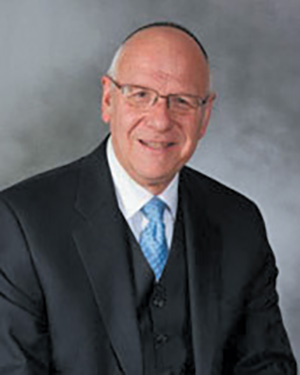
Parshat Vayigash
One of the best-known prophecies in all of Tanach is “The Vision of the Dry Bones” delivered by the navi Yechezkel. In it, the prophet describes a valley filled with lifeless dry bones that come to life, as sinew and flesh are placed upon them and breath is blown into them at the command of Hashem. God explains to the navi that these bones represent kol beit Yisrael, the entire house of Israel, who believe that they are no more than dry bones, a nation with no future and one who, as they say, avda tikvateinu, have lost all hope. However, as the vision depicts, God will raise them up and breathe life into them.
Most commentators understand this vision as being one of encouragement meant for the newly exiled Jews of the Southern Kingdom. Rav Yoel bin Nun, however, makes a powerful argument that this prophecy was actually addressed to the exiles of the Northern Kingdom who had been torn from their land by the Assyrians some 150 years earlier. Among the arguments supporting this view is the use of the same words “kol beit Yisrael” to describe the Israelites of the Northern Kingdom, words that are found in today’s haftarah, which is the very next prophecy of Yechezkel and the continuation of the same perek as the “dry bones” chapter. These “Israelites” (as opposed to “Judeans”), despite their long exile, had not yet been totally assimilated and still had a connection to their brethren. It was this community that felt itself lifeless, hopeless and without a future.
The vision that follows, this morning’s haftarah, continues that same theme by driving home the message that there is no reason for Israel to surrender to despair because, ultimately, the entire nation, both the “Israelites” of Yosef’s kingdom and the “Jews” of Yehuda’s empire, will once again be united and never again be divided. It is this message that connects directly to the events of our parsha where Yehuda’s plea to Yosef finally unites the brothers as one allowing them to form one nation.
But to many who see these words not simply as a message from the past to be realized only in the future, but as a message for the present as well, then perhaps the most moving part of the entire chapter is our ability today to turn to God and declare that, unlike the Israelites of Yechezkel’s time, we do not say avda tikvateinu, we have lost all hope, but regularly declare to Hashem “od lo avda tikvateinu”!
By Rabbi Neil N. Winkler
Rabbi Neil Winkler is the rabbi emeritus of the Young Israel of Fort Lee and now lives in Israel.













